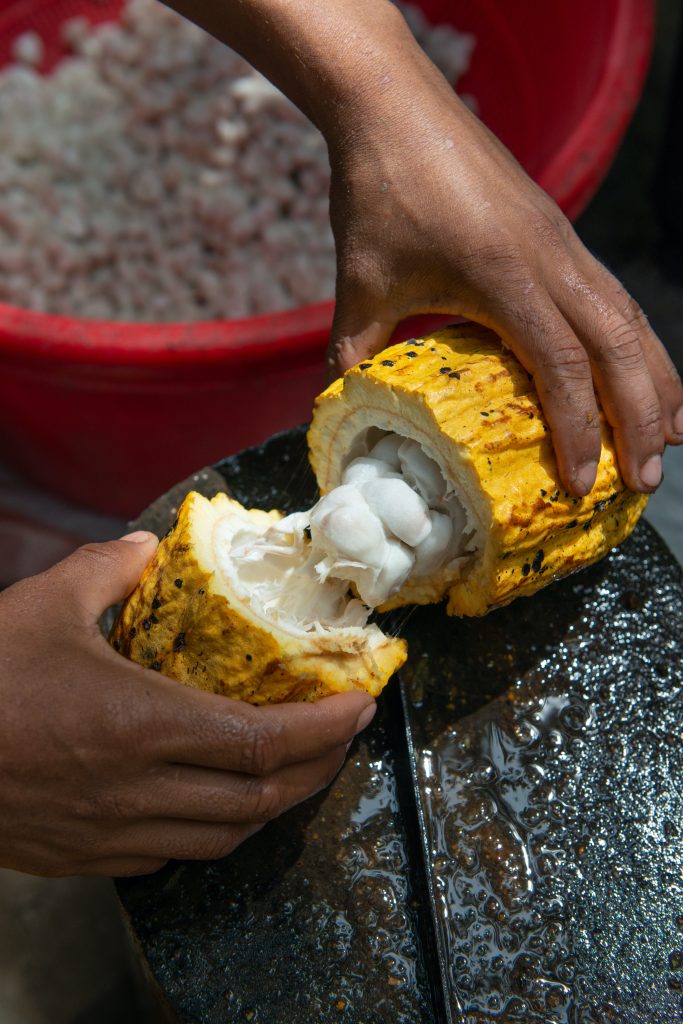Easter is a religious festival – which could involve celebrating God’s solidarity with the universe, for example – but let’s face it, for a lot of people Easter is about chocolate. Egg-shaped chocolate. A big news story this week was that people in the UK could not get their hands on enough of it, due to shortages in the supermarkets.
‘Chocolate shortages’ is a phrase that may ring a bell for those who follow news stories about the climate crisis. Climatic changes are reducing the land area that is suited for cocoa growing, especially in West Africa, where farmers grow most of the world’s cocoa beans.
This story is often talked about as a threat to supply in which the people who might lose out are the consumers. As the Guardian put it, our pleasures may disappear. Frightening stuff, but whose pleasures, exactly, are being discussed here? This way of looking at the problem has a privilege built in.
When I spent several months in Ghana in 2006, the cocoa farmers I met had never eaten chocolate. They were small-holders growing their own food and growing cocoa beans to supplement their income. That income would not stretch to buying chocolate bars. They had not experienced the taste of the end product they grew for. These pleasures had not ‘disappeared’; they were never even there.

Splitting a cocoa bean pod. Photo by Rodrigo Flores on Unsplash.
The story about cocoa, climate, and chocolate matters to different people in different ways. It’s just that the way we tell the story reveals a fair deal – geddit – about who ‘we’ are, who we speak to, and who we leave out of the conversation.
Today’s Easter egg could be dark, milk or white chocolate. It’s not that colour that matters. Eurocentric white privilege is the one that goes unchecked too often. A looming lack of chocolate might strike people as a feature of the end of the world. I like chocolate too, and I understand such concerns. But could that concern be a part of the fear that seeps into discourses and projects that seek to secure white futures in a world of huge inequalities, which have been generated by violence and which are still upheld through it? (1)
If Easter is about universal solidarity, then let’s try to look up, beyond the horizons of our own back garden egg-hunts, and see where ‘we’ are.
(1) An excellent recent academic paper by Audra Mitchell and Aadita Chaudhury discusses this tension: Worlding beyond ‘the’ ‘end’ of ‘the world’: white apocalyptic visions and BIPOC futurisms . However, they do not discuss chocolate.
Robbie is a core member of Climate Emergency Manchester.
